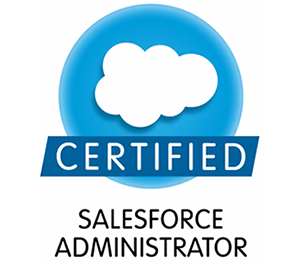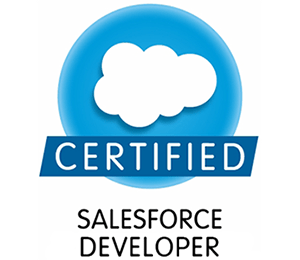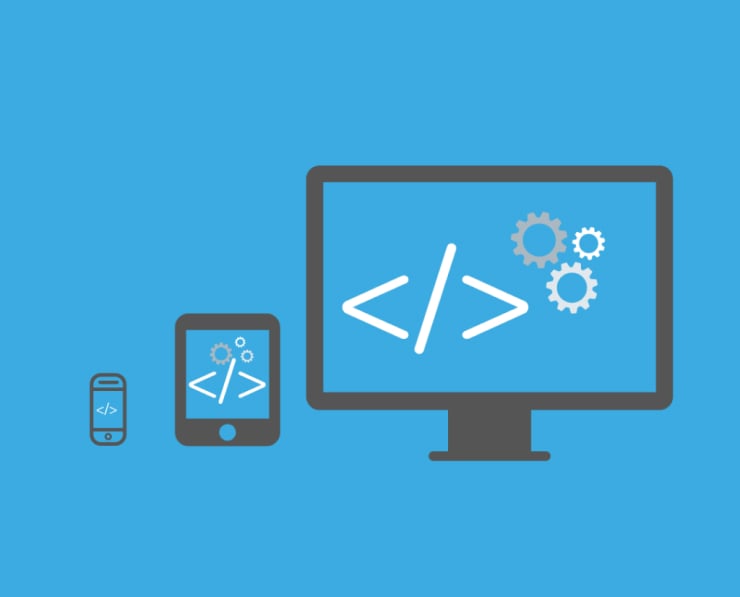practice exams:
Pass Salesforce Certification Exams at the First Attempt Easily
Real Salesforce Exam Questions, Accurate & Verified Answers As Experienced in the Actual Test!
Exam |
Title |
Files |
|---|---|---|
|
5
|
||
|
3
|
||
|
1
|
||
|
5
|
||
|
1
|
||
|
1
|
||
|
1
|
||
|
1
|
||
|
1
|
||
|
3
|
||
|
1
|
||
|
3
|
||
|
4
|
||
|
1
|
||
|
3
|
||
|
1
|
||
|
1
|
||
|
4
|
||
|
1
|
||
|
3
|
||
|
1
|
||
|
3
|
||
|
1
|
||
|
3
|
||
|
1
|
||
|
1
|
||
|
2
|
||
|
1
|
||
|
1
|
||
|
3
|
||
|
1
|
||
|
4
|
||
|
1
|
||
|
1
|
||
|
1
|
||
|
1
|
||
|
1
|
||
|
1
|
||
|
1
|
||
|
6
|
||
|
1
|
||
|
5
|
||
|
1
|
||
|
5
|
||
|
1
|
||
|
1
|
||
|
3
|
||
|
3
|
||
|
1
|
||
|
1
|
||
|
1
|
||
|
1
|
||
|
1
|
||
|
3
|
||
|
3
|
||
|
5
|
||
|
5
|
||
|
3
|
||
|
1
|
||
|
1
|
||
|
3
|
||
|
1
|
||
|
1
|
||
|
1
|
||
|
1
|
Hot Salesforce Tutorials
See AllSalesforce Certification Exam Dumps, Salesforce Practice Test Questions
Don't miss out on the opportunity to get certified with the help of this ever-popular ExamLabs platform that provides you with only verified and legit Salesforce certification practice test questions and answers in VCE format, training courses, and study guides. So, if you're looking to pass your Salesforce certification exams then with ExamLabs practice test questions and exam dumps you can surely pass your exam quickly and easily.
Understanding the Value of Salesforce Certification
Are you a Salesforce professional aiming to elevate your knowledge and sharpen your skill set? If so, you are likely contemplating whether pursuing a Salesforce certification is the right move for your career. It is a significant decision, accompanied by a host of valid questions. What tangible benefits will a certification provide? What is the financial investment required for the courses and exams? Will a formal credential truly open the door to better opportunities in the future? These are critical considerations for any ambitious professional navigating the dynamic Salesforce ecosystem.
This series aims to address these questions comprehensively. We will delve into the fundamentals of Salesforce certifications, exploring what they represent and how they can profoundly impact your professional trajectory. The goal is to provide you with a clear and thorough understanding, enabling you to make an informed decision that aligns with your personal career aspirations. Whether you are just starting your journey or are a seasoned veteran in the field, understanding the role of certification is a vital step in charting your path to success.
What Exactly is a Salesforce Certification?
First and foremost, it is essential to define what a Salesforce certification truly is. A Salesforce certification is a globally recognized credential that serves as official proof of your proficiency and experience with the Salesforce platform. It is a formal validation from Salesforce itself, confirming that you possess a satisfactory level of knowledge and skill. This credential acts as a powerful signal to potential employers, demonstrating that you not only understand the platform's core functionalities but also know how to leverage them to create high-quality, effective business solutions.
These certifications are meticulously structured and categorized to align with different roles and experience levels within the ecosystem. There are specific certification paths for individuals who are just beginning their Salesforce careers, as well as advanced credentials for seasoned professionals who have been working in the field for several years. Each category and level offers a different degree of recognition and validates a distinct area of expertise. Therefore, it is crucial to research and identify which certification path is best suited to your current skills and future goals before you begin your journey.
The Tangible Benefits of Getting Certified
Now that we have a clear understanding of what a Salesforce certification is, the next logical question is why you should consider earning one. The benefits associated with holding these credentials are numerous and can significantly impact your career. One of the most immediate advantages is the instant credibility and respect it garners from your peers within the Salesforce Ohana, the vibrant and supportive community of Salesforce users, developers, and partners. A certification is a testament to your dedication and expertise, earning you recognition as a serious professional.
From a career advancement perspective, a certification sends a powerful message to potential employers. It shows that you have proactively invested your own time and effort to deepen your understanding of the platform and have successfully passed a rigorous, proctored exam to prove your expertise. This dedication can be a key differentiator in a competitive job market. Furthermore, holding specific certifications may unlock new job opportunities that were previously inaccessible, as many companies, particularly in the consulting space, have specific certification requirements for certain roles or promotions.
The Employer's Perspective on Certification
To fully appreciate the value of certification, it is helpful to view it from the employer's side of the hiring table. For implementation partners, who are companies that help other businesses implement and customize Salesforce, certifications are the currency of success. These organizations need to prove to their clients that their team members are certified experts across all relevant aspects of the Salesforce platform. Obtaining and maintaining certifications is the most direct and effective way for them to demonstrate this high level of expertise and build client trust.
For companies that are end-users of the platform, the perspective can be slightly different. While certifications are often listed as a desirable qualification on job postings, hands-on, practical experience may be weighed more heavily during the interview process. However, this does not diminish the value of the credential. Earning a certification is a powerful way to showcase your passion for the Salesforce ecosystem and your commitment to continuous learning. It demonstrates an initiative that goes beyond the day-to-day requirements of a job, making you a more valuable asset to any organization.
Certification vs. Experience: A Balancing Act
The debate between the importance of certifications and hands-on experience is a long-standing one in the technology industry. While experience will almost always reign supreme as the most critical factor in your career progression, it is a mistake to view certifications as a mere formality. The ideal approach is to find the perfect balance between the two. Experience teaches you how to navigate the unique challenges and complexities of a real-world business environment, while certifications provide the structured, best-practice knowledge that makes your experience more effective.
Think of it this way: experience is your ability to drive the car, while certification is your official driver's license. You can learn to drive without a license, but the license proves you have been tested on the rules of the road and have met a standard level of competence. In the world of Salesforce, certifications can lead to unique opportunities, especially within the partner ecosystem. They set you apart from other candidates and can be the deciding factor that lands you an interview, where you can then elaborate on your valuable hands-on experience.
Do You Truly Need Certifications for a Successful Career?
The short and direct answer to this question is no; not every single professional needs certifications to build a successful career with Salesforce. There are many highly skilled and respected individuals who have achieved great success based on their extensive experience and deep understanding of the platform. Practical, hands-on experience will always be the most powerful engine for driving your career forward. If you have years of proven success in delivering complex Salesforce projects, the absence of a certification is unlikely to hold you back.
However, this does not tell the whole story. If you are at the beginning of your Salesforce journey, a certification is one of the most effective ways to prove your knowledge and get your foot in the door. It compensates for a lack of on-the-job experience and shows that you have the foundational skills to be a productive member of a team. For experienced professionals, certifications are not about proving you can do your job, but rather about expanding your skill set, specializing in a new area, and opening up new opportunities for growth.
Ultimately, investing in certification is a strategic decision. It is a way to formalize your knowledge, stay current with the latest platform updates, and demonstrate your commitment to your profession. While not strictly necessary for everyone, it is a powerful tool that can go a long way in helping you achieve your specific career goals.
Decoding the Salesforce Certification Landscape
The Salesforce certification landscape is vast and can initially seem complex, with credentials spanning a wide range of roles and specializations. However, it is logically structured into several distinct pathways that align with the primary job functions within the ecosystem. These paths are designed to guide a professional's growth from a foundational understanding to a deep, specialized expertise. The main categories include Administrator, Developer, Architect, Marketer, and Consultant. Each path contains a series of certifications that build upon one another, creating a clear roadmap for career advancement.
Understanding these pathways is the first step in planning your certification journey. You need to identify which role most closely aligns with your skills, interests, and career aspirations. Are you passionate about helping users and configuring the system to meet business needs? The Administrator path might be for you. Do you enjoy building custom applications and writing code? The Developer path would be a natural fit. By familiarizing yourself with the different tracks, you can make a strategic choice about your first certification and plan your long-term professional development within the Salesforce world.
The Cornerstone: The Salesforce Certified Administrator
For a vast majority of professionals starting their journey, the Salesforce Certified Administrator credential is the universally recommended starting point. This certification is the cornerstone of the entire program and is often a prerequisite for more advanced certifications in other tracks. It is designed for individuals who have a broad understanding of the Salesforce platform and are responsible for its day-to-day management. The exam covers a wide range of topics, including user setup, security and access, data management, and process automation using tools like Flow.
Earning the Administrator certification proves that you have the skills to maintain and enhance a Salesforce organization for a company. It demonstrates your ability to troubleshoot user issues, create reports and dashboards, and configure the platform to meet ever-changing business requirements. This certification is ideal for those who enjoy problem-solving and working directly with business users to help them get the most out of the system. It is the single most popular certification for a reason: it validates the core skills that are essential for nearly every Salesforce role.
The Builder: The Salesforce Platform App Builder
Closely following the Administrator certification in popularity and foundational importance is the Salesforce Platform App Builder credential. While the Administrator focuses on maintaining the system, the App Builder is focused on extending its capabilities without writing code. This certification is designed for professionals who are skilled in using the declarative, or "clicks-not-code," tools on the platform to design, build, and deploy custom applications. The exam covers topics such as the Salesforce data model, application design, user interface customization, and business logic automation.
The Platform App Builder certification is perfect for individuals who have a knack for understanding business processes and translating them into functional applications. It demonstrates your ability to create custom objects, fields, and relationships, design intuitive page layouts, and build sophisticated automation using tools like Flow and approval processes. For many, this is a natural next step after the Administrator certification, as it takes the skills of configuration to the next level of creation. It is an ideal credential for those who want to build powerful solutions without diving into the world of programming.
The Strategist: The Salesforce Business Analyst
A newer but increasingly vital certification is the Salesforce Certified Business Analyst. This credential focuses on a critical, yet often overlooked, skill set: the ability to bridge the gap between business stakeholders and technical teams. A business analyst is responsible for identifying business needs, gathering requirements, and ensuring that the solutions being built in Salesforce are aligned with the company's strategic goals. The certification validates your skills in stakeholder management, requirements elicitation, and process mapping.
Earning the Business Analyst certification proves that you have the strategic mindset to ensure the success of a Salesforce project. It shows that you can ask the right questions, understand the "why" behind a request, and translate that into a clear and actionable set of requirements for the administrators and developers to build. This certification is ideal for individuals with strong communication and analytical skills who enjoy working at the intersection of business and technology. In a world where many IT projects fail due to poor requirements, a certified Salesforce Business Analyst is an incredibly valuable asset.
The Consultant Path: Specializing in the Clouds
Once you have established a foundational knowledge with the Administrator or App Builder certifications, you may choose to specialize in one of Salesforce's core products, often referred to as "Clouds." The Consultant certification track is designed for professionals who have deep expertise in a specific product and are skilled in implementing it for clients. The most popular consultant certifications include the Sales Cloud Consultant, the Service Cloud Consultant, and the Experience Cloud Consultant. Each of these credentials requires a deep understanding of the features and best practices of its respective product.
For example, the Sales Cloud Consultant certification validates your ability to design and implement solutions that support a company's sales processes, from lead management to forecasting. The Service Cloud Consultant certification, on the other hand, focuses on solutions for customer service and support, including case management and knowledge bases. Earning a consultant certification demonstrates not just product knowledge, but also the ability to manage a project, engage with stakeholders, and deliver a solution that provides maximum business value. These are advanced certifications that signal a high level of expertise.
Choosing Your First Certification
For a newcomer, the array of options can be daunting. However, the choice for your first certification is usually quite clear. For over 90% of people starting in the ecosystem, the Salesforce Certified Administrator exam is the correct first step. It provides the most comprehensive overview of the platform's core features and aligns with the skills needed for the most common entry-level roles. It serves as the foundation upon which almost all other knowledge is built.
If your background is more technical and you are certain you want to focus on building custom applications, the Platform App Builder could also be a viable starting point. However, even for aspiring builders, the knowledge gained from the Administrator curriculum is invaluable. Therefore, the safest and most recommended path is to start with the Administrator certification. Once you have passed that exam, you will have a much clearer understanding of the platform and will be in a better position to decide whether your next step is the App Builder, a Consultant track, or another specialization.
The Developer Path: From Clicks to Code
While the Administrator and App Builder roles focus on what can be achieved with declarative tools, the Developer path is for those who want to unlock the full power of the Salesforce platform through custom code. The Salesforce Developer certifications are designed for professionals who can build custom applications and integrations using Apex, the proprietary Java-like programming language of Salesforce, and Lightning Web Components, a modern JavaScript framework for building user interfaces. This path is for individuals who are not just configuring the platform, but fundamentally extending its capabilities.
The journey for a developer typically begins with the Platform Developer I certification. This credential validates a candidate's knowledge of the core programmatic capabilities of the platform. It covers topics such as data modeling, process automation, and, most importantly, the fundamentals of Apex and SOQL (Salesforce Object Query Language). Passing this exam proves that you have the skills to write basic Apex triggers and controllers, build custom user interfaces, and understand the core principles of developing on a multi-tenant platform. This is the essential first step for any aspiring Salesforce programmer.
Advancing with Platform Developer II
After mastering the fundamentals with the Platform Developer I certification, the next step for a serious coder is the Platform Developer II credential. This is a significantly more advanced certification that requires a much deeper level of knowledge and experience. It is designed to test your ability to design, develop, test, and deploy complex, scalable, and high-performance applications on the Lightning Platform. The exam consists of two parts: a multiple-choice section and a practical, hands-on programming assignment that must be completed and submitted for review.
The Platform Developer II certification covers advanced Apex programming concepts, complex user interface development with Lightning Web Components, and a deep understanding of the platform's governor limits and best practices for writing efficient code. It also tests your knowledge of integration patterns and your ability to work with Salesforce APIs. Earning this certification is a major accomplishment and signals to the industry that you are a highly skilled and experienced developer, capable of tackling the most demanding development challenges on the platform.
Introduction to the Architect Journey
For the most experienced and ambitious professionals in the Salesforce ecosystem, the Architect path represents the pinnacle of expertise. A Salesforce Architect is a strategic advisor who has a deep and broad understanding of the entire platform. They are responsible for designing sound, scalable, and secure technical solutions that meet the complex needs of large enterprise customers. The architect is not just a technical expert; they are a master problem-solver, a skilled communicator, and a trusted advisor to business leaders.
The journey to becoming a top-tier architect is long and challenging, and it is structured around a pyramid of certifications. The base of the pyramid consists of the foundational certifications, such as the Administrator and Platform App Builder. The next level up is a series of specialized certifications known as the Domain Architect credentials. These are grouped into two main areas: the Application Architect and the System Architect. To achieve these, you must earn a collection of other, more specialized certifications, proving your expertise across a wide range of topics.
The Application and System Architect Domains
To earn the Application Architect credential, a candidate must first pass four specific certifications: the Platform App Builder, the Platform Developer I, the Data Architect, and the Sharing and Visibility Architect. This combination validates a deep expertise in the declarative and programmatic capabilities of the platform, as well as a sophisticated understanding of how to design a secure and scalable data model. The Application Architect is an expert in designing the core components of a Salesforce solution.
To achieve the System Architect credential, a candidate must also pass four certifications: the Platform Developer I, the Integration Architect, the Development Lifecycle and Deployment Architect, and the Identity and Access Management Architect. This path focuses on the more technical, back-end aspects of the platform. The System Architect is an expert in integrating Salesforce with other systems, managing the development and deployment process, and designing a robust security and identity management framework.
The Summit: The Certified Technical Architect (CTA)
At the very top of the entire Salesforce certification pyramid is the prestigious Certified Technical Architect (CTA). This is widely regarded as the most difficult and respected credential in the entire cloud computing industry. To even be eligible to sit for the CTA review board, a candidate must first have earned both the Application Architect and the System Architect credentials. The final step is a grueling, multi-hour review board exam where the candidate is presented with a complex, hypothetical business scenario and must design a complete technical solution and defend it in front of a panel of expert CTA judges.
Earning the CTA is the ultimate validation of your expertise. It proves that you have a masterful understanding of the entire Salesforce platform and can design and articulate complex, enterprise-scale solutions that are secure, scalable, and aligned with business goals. There are only a few hundred CTAs in the world, and they are among the most sought-after and highly compensated professionals in the technology industry. It is a long and arduous journey, but for those who reach the summit, the rewards and recognition are immense.
Your First Stop: The Power of Trailhead
For anyone preparing for a Salesforce certification, the first and most important resource is Trailhead, Salesforce's free online learning platform. Trailhead is a revolutionary tool that gamifies the learning process, making it engaging and accessible for everyone. It is not just a collection of documentation; it is an interactive platform where you can learn new skills by completing hands-on challenges in a real, live Salesforce development environment, known as a Trailhead Playground. This practical approach is the key to truly understanding the platform.
Trailhead is organized into a hierarchy of content. Modules are short, focused units that teach a specific topic. These are grouped together into Trails, which are guided learning paths that provide a comprehensive overview of a particular subject or job role. For a more in-depth, project-based learning experience, there are Superbadges, which are complex, real-world business scenarios that you must solve by applying the skills you have learned across multiple modules. For any certification you plan to take, there is a corresponding "Prepare for your Credential" Trailmix, which is a curated list of all the recommended learning materials.
Crafting a Personal Study Plan
While Trailhead provides the content, you need to provide the structure. A well-crafted personal study plan is essential for success. Start by downloading the official exam guide for your chosen certification. This document is your blueprint; it details the percentage weighting of each topic on the exam and lists all the specific objectives you need to master. Use this guide to conduct a self-assessment, identifying your strengths and weaknesses. This will allow you to focus your study time on the areas where you need the most improvement.
Next, set a realistic timeline for your exam. Depending on your prior experience and the amount of time you can dedicate each week, preparing for a foundational exam like the Administrator can take anywhere from a few weeks to a few months. Break down your study plan into manageable weekly and daily goals. For example, you might dedicate one week to mastering security and access, and the next to data management. A structured plan helps to prevent procrastination and ensures that you cover all the necessary material in a systematic way.
The Importance of Practice Exams
As you get closer to your exam date, practice exams become an indispensable part of your preparation. Taking high-quality practice tests serves several critical purposes. First, it helps you to assess your readiness and identify any remaining knowledge gaps. A good practice exam will provide detailed explanations for each answer, allowing you to learn from your mistakes. Second, it familiarizes you with the style and format of the questions on the actual exam. Salesforce questions are often scenario-based and can be tricky, so getting used to them beforehand is a major advantage.
Finally, taking timed practice exams helps you to develop your test-taking strategy and time management skills. The real exam has a strict time limit, and it is important to pace yourself correctly. Look for practice exams from reputable sources. While there are many free options available, it is often worth investing in a paid set of practice tests from a well-regarded training provider, as these are typically more accurate and up-to-date. Consistently scoring well above the passing mark on multiple practice exams is a strong indicator that you are ready for the real thing.
Understanding the Financial Investment
It is important to be aware that taking Salesforce certification exams is not free, and the costs increase with the level of the certification. The entry-level exams, such as the Administrator, typically cost around $200 per attempt. The more advanced exams, like the Consultant-level credentials, can cost up to $400. The journey to the top-tier Architect certifications can run into the thousands of dollars. You also need to factor in the cost of a retake, which is usually half the price of the initial exam.
While this may seem like a significant expense, it is best to view it as an investment in your career. The potential return on investment from a salary increase or a new job opportunity can far outweigh the initial cost of the exams. It is also worth noting that many employers offer to pay for certifications as part of their learning and development benefits. When you are applying for roles, be sure to ask if this is something that is included in the compensation package. This can be a valuable perk that supports your continuous professional growth.
The Logistics of Exam Day
When you are ready to take your exam, you will register through Salesforce's official testing partner. You will typically have the choice of taking the exam either in person at a designated testing center or online from your home or office. The in-person option provides a controlled environment, but the online option offers more flexibility. If you choose to take the exam online, you will need to install a special secure browser, and you will be monitored by a remote proctor via your webcam and microphone.
On exam day, make sure you are well-rested and have everything you need. For online exams, you will need to present a valid form of identification and ensure your testing area is clear of any unauthorized materials. During the exam, read each question carefully. Use the "mark for review" feature if you get stuck on a difficult question, and come back to it later. There is no penalty for guessing, so be sure to answer every question. Once you submit the exam, you will receive your pass or fail result almost immediately.
Marketing Your New Credential
Earning a Salesforce certification is a significant accomplishment, but its true value is only realized when you effectively market it to the professional world. The first and most crucial step is to update your online profiles. Add your new credential to the "Licenses & Certifications" section of your LinkedIn profile. This is a powerful signal to recruiters and hiring managers who are actively searching for candidates with your specific skills. Also, consider writing a post to announce your achievement to your network; this can generate engagement and open up new conversations and opportunities.
Your resume should also be immediately updated. Create a dedicated section for your certifications and list them prominently. Do not just list the title of the credential; also be sure to weave the skills you learned into the "Skills" and "Experience" sections of your resume. For example, instead of just saying you are a "Salesforce Certified Administrator," you can describe how you used your certified knowledge of Flow to automate a key business process at your previous job. This connects your certification to tangible business value, which is what employers are looking for.
The Synergy of Certifications and Experience
As we have discussed, certifications and experience are not opposing forces; they are two sides of the same coin. The most successful Salesforce professionals are those who effectively combine the two. Certifications provide the structured, theoretical knowledge of best practices, while experience provides the practical, real-world context where that knowledge can be applied. Your goal should be to create a virtuous cycle where each one enhances the other.
When you are in a job, use your hands-on experience to identify areas where you want to deepen your knowledge, and then pursue a certification in that area. For example, after working on a project that involved a complex integration, you might decide to study for the Integration Architect certification. Conversely, use the knowledge you gain from your certification studies to improve how you perform your job. You might learn about a new feature or a more efficient way of doing something that you can immediately apply to your work, creating value for your employer and reinforcing your own learning.
Embracing the Salesforce Community Culture: The Strength of the Ohana
One of the most defining and inspiring features of the Salesforce ecosystem is the vibrant and inclusive network that surrounds it—commonly referred to as the Salesforce Ohana. More than just a community, the Ohana represents a shared philosophy of collaboration, mutual respect, and collective growth. For anyone navigating a journey within the Salesforce ecosystem—whether you're an administrator, developer, consultant, or end-user—this global alliance offers not just support, but a sense of belonging.
The word “Ohana” means family, and that concept has been intentionally embedded into the culture of Salesforce itself. It encompasses everyone connected to the platform, from newcomers just starting their certification paths to seasoned experts building enterprise-level solutions. The result is an environment where knowledge is freely exchanged, encouragement is constant, and every member is welcomed regardless of background or skill level.
What truly sets this network apart from other tech communities is the depth of engagement. It is not just a place for troubleshooting software issues—it is a space where careers are cultivated, partnerships are forged, and lifelong mentorships are often born. Participating in this interconnected world can open countless doors for personal growth and career advancement.
Leveraging the Global Salesforce Network to Accelerate Career Growth
Becoming part of the Salesforce Ohana isn’t just a feel-good initiative—it’s a strategic move for anyone looking to advance professionally within the ecosystem. The network provides unparalleled opportunities to grow your expertise, expand your visibility, and connect with professionals who are not only knowledgeable but eager to help others succeed.
One of the most practical ways to establish credibility within this community is by earning Salesforce certifications. These credentials act as a gateway, giving you something tangible to share in conversations and setting a foundation for your professional identity. Whether it’s your first Admin certification or a multi-specialty credential spanning development and architecture, these achievements signal your commitment and capability to others in the network.
Once you've earned a certification, it becomes a powerful icebreaker—something that sparks dialogue and garners respect in user groups, job interviews, or even informal social chats. People across the ecosystem recognize the value of Salesforce certifications and are often eager to support those who are investing in their education and growth. Engaging in conversations about your learning journey can lead to mentorship opportunities, job referrals, or even project collaborations.
Moreover, building your presence within the Ohana helps you stay aligned with the rapid changes in the Salesforce platform. Regular engagement means you’re more likely to hear about new features, platform updates, and evolving best practices—often before they’re widely published. This kind of insight gives you a competitive edge and makes you a more informed contributor to your team or organization.
Tapping Into Endless Learning, Mentorship, and Networking Channels
The Salesforce Ohana provides countless avenues for personal and professional enrichment. Whether you prefer face-to-face engagement or digital interaction, there’s a format to suit every learning style and networking preference. Local community groups—often referred to as “user groups” or “community groups”—offer regular meetups where professionals gather to share experiences, solve problems, and exchange knowledge in a welcoming, supportive environment.
These local gatherings are excellent venues to sharpen your skills, ask for guidance, and get inspired by the stories of others who’ve navigated similar challenges. They're also ideal places to meet peers who may later become collaborators, mentors, or employers. Many professionals trace their career breakthroughs back to connections made in such settings.
On a broader scale, Salesforce organizes large-scale events that bring together the entire ecosystem. Conferences such as Dreamforce and regional summits offer immersive experiences filled with keynote speakers, hands-on workshops, innovation showcases, and networking receptions. Attending these gatherings not only expands your technical understanding but also gives you the chance to build high-value relationships across geographies and industries.
Online channels provide another dynamic layer of support. Forums, social media groups, and podcasts offer continuous access to discussion, discovery, and idea exchange. The ability to crowdsource solutions to complex issues or stay current with trends is one of the greatest advantages of belonging to this global collective. You can pose a question and receive feedback from experts across the globe within minutes.
The Trailhead Experience: Elevating Learning Through Community
Among all the resources available to Salesforce professionals, one of the most powerful is the Trailhead learning environment. More than just a digital education platform, Trailhead is a deeply interactive community where learners can engage with one another, track their progress, and contribute to group discussions. The integrated structure of Trailhead makes it easy to learn new skills at your own pace, while also benefiting from the collective experience of others.
Through Trailhead, individuals can follow customized learning paths, earn badges to mark their achievements, and participate in quests that make education engaging and game-like. But beyond the coursework, Trailhead also serves as a social hub. Learners regularly share their progress, celebrate milestones, and support one another with encouragement or technical advice.
This collaborative spirit creates a self-sustaining cycle of learning and teaching. New users benefit from the insights of more experienced participants, while seasoned professionals stay fresh by mentoring others and exploring new modules. The shared commitment to growth transforms Trailhead into more than a curriculum—it becomes a career companion that evolves with you.
As you advance in your own learning, sharing your journey within Trailhead communities can boost your visibility and strengthen your personal brand. Whether you're showcasing your badge streak or offering help in discussion threads, each interaction solidifies your reputation as a contributing member of the Salesforce ecosystem.
Joining the Ohana: No Cost, Infinite Potential
Perhaps the most remarkable aspect of joining the Salesforce Ohana is that it is completely free and universally accessible. There is no membership fee, no application barrier, and no exclusivity. Whether you are a beginner still exploring career options or a certified professional building enterprise solutions, there is a place for you within this family.
The return on engagement is significant. By participating in the community, you not only enhance your technical know-how but also expand your soft skills—like collaboration, communication, and leadership. These attributes are just as crucial in today’s workforce as certifications or experience.
The Salesforce Ohana isn’t just about personal gain—it’s about contribution. The more you engage, the more you give back to others who are walking the same path you once did. This cycle of giving and receiving is what makes the Ohana more than a support group. It’s a professional home base, a sounding board, and a launching pad all in one.
In a tech landscape often driven by competition, the Salesforce community stands out as a beacon of inclusivity and empowerment. Investing time in this network pays off not just in job offers or skills—but in belonging, confidence, and continued opportunity.
Maintaining Your Credentials
Earning a Salesforce certification is not a one-time event; it is a commitment to continuous learning. The Salesforce platform is constantly evolving, with three major releases each year that introduce new features and updates. To ensure that the knowledge of certified professionals remains current, Salesforce requires you to maintain your credentials. Fortunately, this process is much simpler and less expensive than taking the initial exam.
For most certifications, maintenance is handled through a short, online module on Trailhead that you must complete once a year. These maintenance modules are free and are designed to test your knowledge of the latest platform updates that are relevant to your certification. Failing to complete your required maintenance modules by the deadline will result in your certification expiring, and you would have to pass the full, proctored exam again to regain it. Therefore, it is crucial to stay on top of your maintenance requirements to protect the investment you have made in your credentials.
Planning Your Long-Term Career Roadmap
Your Salesforce certifications are the building blocks of your long-term career. After you earn your first foundational credential, you should start thinking about your future roadmap. Where do you want to be in five years? Do you want to become a deep technical expert, a strategic consultant, or a respected architect? Your answers to these questions will help you to choose your next certifications and guide your professional development.
Use the certification pathways as a guide. If you enjoy the hands-on building aspects of the platform, you might decide to pursue the full Application Architect path. If you are passionate about a specific industry, you might look into the specialized industry credentials that Salesforce offers. The key is to be intentional about your learning. Each certification you earn should be a strategic step that moves you closer to your ultimate career goal. By combining continuous learning, practical experience, and active community engagement, you can leverage your certifications to build a successful and rewarding career in the Salesforce ecosystem.
Updated & latest Salesforce certification exam dumps from ExamLabs, Study Guide and Training Courses which are prepared by seasoned experts in order to help you pass. With Real Salesforce certification practice test questions and answers and verified exam dumps you will pass the Actual Real World Exam in No Time. Salesforce exam dumps & practice test questions with answers from ExamLabs make sure that you pass your Salesforce certifications easily and climb you career ladder easily.
How to Open VCE Files
Please keep in mind before downloading file you need to install Avanset Exam Simulator Software to open VCE files. Click here to download software.























Comments
Rajesh
Nov 17, 2025, 02:46 PM
Hi Do You have the below dumps? 1) ITIL Manage Professional Transition 2) Salesforce Certified Industries CPQ Developer 3) Vlocity Order Management Developer